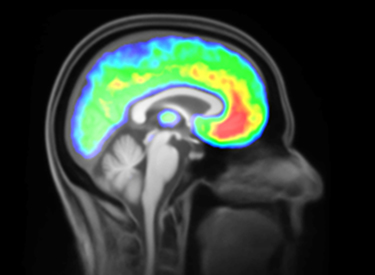

Early Clinical Imaging
Overview
Molecular imaging is a powerful tool for advancing drug development programs and is used in a clinical setting to answer biological questions regarding PK/PD, target expression and engagement, internalization and metabolism of novel therapeutics and the development of biomarker strategies. The “translatability” of molecular imaging methodologies into the clinical setting allows for the development of biomarker-based companion diagnostics to support go/no-go decisions at early clinical phases. Invicro’s combination of flexible, versatile and innovative preclinical work together with highly specialized clinical imaging experience provides the perfect toolbox for research programs interested in quickly advancing their products into the clinical setting.
Applications
Invicro is the world’s leading translational imaging company, with expert imaging scientists, decades of pharma and biotech experience, and in-depth knowledge of imaging, biology, chemistry, data analysis, and clinical applications. Our unrivalled expertise in design, data acquisition, analysis and interpretation of imaging biomarker studies provides confidence in the delivery and quality of decision-making data for drug development. Invicro executes early-phase PET, SPECT and MRI studies in our in-house imaging facilities. Both facilities follow GCP processes and are supported by GMP radiochemistry and pharma-grade analysis, operations and regulatory groups.
PET/SPECT
Positron Emission Tomography (PET) and Single-Photon Emission Computed Tomography (SPECT) are nuclear medicine imaging techniques that use bespoke ligands labelled with isotopes to quantify molecular targets in vivo. PET/SPECT combine sub-picomolar sensitivity and unique molecular specificity to allow the investigation of a wide range of molecular targets. PET/SPECT imaging in early clinical development, often as part of first-in-human studies, helps determine the drug distribution, target interaction and downstream pharmacology of novel drugs. Such information can aid in the selection of doses for proof-of-concept studies, which has been demonstrated to reduce both cost and time in early stage development.
Radiochemistry
Invicro possesses the world’s largest radiochemistry group for the development of novel ligands. Our facilities in the US and UK enable the discovery, optimization, and characterization of novel radioligands, labelled with positron (C-11, F-18, Ga-68, Zr-89) and gamma (Tc-99m, I-125, I-123, In-111) as well as other imaging and therapeutic isotopes (Lu-177, Ac-225). In addition, we perform imaging and pharmacology studies in a variety of preclinical species.
MRI
Magnetic Resonance Imaging (MRI) is a flexible, non-invasive medical imaging modality used to investigate the anatomy and physiology in both health and disease. Invicro provides a range of MRI solutions, including:
- Structural MRI – provides detailed images of soft tissues in the body to monitor disease burden, progression, and treatment in areas such as oncology, inflammatory diseases, respiratory disease and neurology
- Functional MRI (fMRI) – used to understand how different parts of the brain respond to external stimuli and pharmacological treatment (phMRI)
- Magnetic Resonance Spectroscopy (MRS) – measures metabolism and target metabolites in a variety of tissues
Invicro’s MRI group has expertise in the application of MR-based methods for drug development. Human MRI facilities based in London allow us to perform in-house studies for clients in a GMP/GCP environment. In addition, we have experience executing multi-center MRI studies in collaboration with medical centers or for clinical trials. The availability of both PET and MRI at Invicro’s internal facility allows for design, conducting, and efficient delivery of multi-modal studies to deliver a comprehensive characterization of novel pharmaceuticals.
Modalities
- SPECT
- PET
- PET/CT
- PET/MRI
- MRI
- CT
- Ultrasound
- Additional Modalities Available
Therapeutic Areas
Thought Leadership Content
Case Studies
Rhesus Teeth Segmentation by Use of Multi-Atlas Library
Estimating Posterior Lumbar Fusion Integrity Using Conductivity Analysis
Antigen Density Estimation – Clinical PET/CT Protocol Design for a First-In-Human Diagnostic Peptide
Lipid Quantification Tool Development Using Multi-Echo MRI
Webinars
Translating Radiolabeled Biologics – Strategies for Successful IND Submission
Segmentation of Lesions in Whole-Body PET/CT Using Deep Learning
Utilizing Imaging Agent Biomarkers for Improved Patient Management – Challenges and Successes
PSMA: Imaging Biomarker Development
Molecular Imaging in Neurodegenerative Disorders: Developing a Translational Toolbox
Wherefore art Tau? Developing Methods for the Qualitative Interpretation of Tau PET
The IQ Analytics Platform: Amyloid-IQ, Tau-IQ and Dat-IQ
Advanced Imaging Biomarkers in Alzheimer’s Disease

